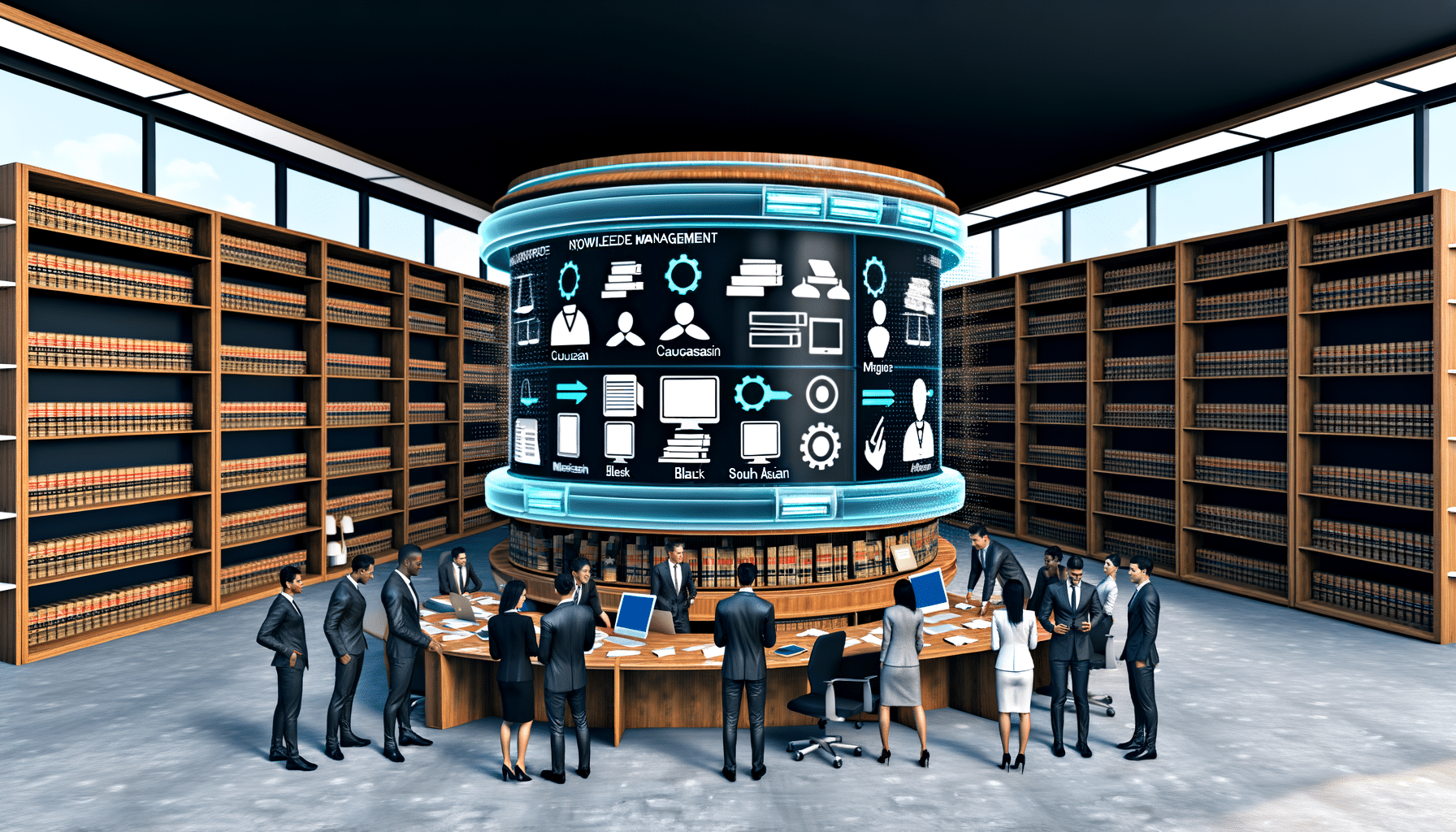- Knowledge Sharing
- September 24, 2024
Benefits of Using Legal Knowledge Management Systems

As the world becomes increasingly digital, the legal industry has seen a shift in how knowledge is managed and utilized. During my journey with RecordsKeeper.AI, I realized the endless possibilities of leveraging technology to enhance traditional practices. One particular area I’ve found fascinates the intersection of legal knowledge and technology—specifically, Legal Knowledge Management systems. Let me share insights and benefits of how adopting these systems can transform legal practices and help your organization thrive.
Understanding Legal Knowledge Management
Knowledge Management (KM) refers to the systematic process of capturing, distributing, and effectively using knowledge. In the legal context, it involves creating, sharing, and managing an organization’s legal knowledge assets. These assets comprise case laws, statutes, legal precedents, and practices unique to each organization or practitioner.
Why Legal KM is Crucial
Legal KM systems play a pivotal role in enabling law firms and legal departments to operate more effectively. Through these systems, legal professionals can easily access consolidated knowledge, improving decision-making and enhancing case preparation. This optimized management of knowledge helps in delivering quality legal services while minimizing risks.
Benefits of Legal Knowledge Management Systems
The benefits of implementing a legal knowledge management system are multifold:
- Enhanced Efficiency: Legal professionals spend a significant amount of time searching through documents and precedents. With a robust KM system, this time is vastly reduced, allowing professionals to focus on more strategic tasks.
- Increased Accuracy: By providing easy access to the latest laws, regulations, and case data, a legal KM system ensures that all legal services are based on the most current and accurate information, reducing chances of error.
- Compliance Assurance: Legal environments are governed by strict compliance standards. Having a structured KM system ensures that all necessary legal standards, such as GDPR or HIPAA, are adhered to.
- Cost Savings: Streamlining legal operations through automation and structured knowledge management can lead to significant cost reductions, primarily by decreasing the demand for time-intensive manual tasks.
- Enhanced Collaboration: With centralized knowledge resources, legal teams can collaborate more efficiently, tapping into collective intelligence to solve complex legal issues.
Case Studies: Real-World Impact
Throughout my career, I have witnessed the transformative impact of legal KM systems across various sectors. For instance, a leading law firm implemented such a system and saw an immediate reduction in research time by 40%. This change not only increased their servicing capacity but also improved client satisfaction rates exponentially. Additionally, government departments have successfully managed complex legislation and policy-making processes with a streamlined KM system.
Implementing Legal KM Systems: Best Practices
To take full advantage of a legal knowledge management system, consider these best practices:
- Define Clear Objectives: Set clear goals and metrics to measure success. Whether it’s reducing research time, ensuring compliance, or enhancing collaboration, understanding your objectives is crucial.
- Involve All Stakeholders: Involvement from all levels of the organization ensures that the KM system is user-friendly and meets the distinct needs of every user.
- Utilize AI and Blockchain: Leveraging AI can automate sorting and categorization of legal documents, while blockchain ensures secure and immutable records.
- Regular Training: Continuous training sessions will help your team stay adept with the technology and changes within the legal landscape.
Looking Forward: The Future of Legal KM
As we look ahead, the evolving landscape of legal knowledge management promises ongoing advancements. Technologies such as AI and blockchain are integral to this evolution, offering heightened security, accessibility, and efficiency. I envision a future where every law firm or legal department is equipped with a cutting-edge KM system, not just as a competitive advantage but as a standard practice.
Conclusion
Implementing an effective legal knowledge management system can mark a significant milestone in enhancing legal practices. By bolstering efficiency, ensuring accuracy, and fostering compliance, such systems add invaluable benefits to legal operations. As I continue to navigate the possibilities in AI and blockchain, I remain passionate about empowering organizations with the tools and insights needed for transformative success. Dive deeper into this fascinating journey and learn how RecordsKeeper.AI might just redefine your record management strategy.
Toshendra Sharma is the visionary founder and CEO of RecordsKeeper.AI, spearheading the fusion of AI and blockchain to redefine enterprise record management. With a groundbreaking approach to solving complex business challenges, Toshendra combines deep expertise in blockchain and artificial intelligence with an acute understanding of enterprise compliance and security needs.
Archives
- December 2024
- November 2024
- October 2024
- September 2024
- August 2024
- July 2024
- June 2024
- May 2024
- April 2024
- March 2024
- February 2024
- January 2024
- December 2023
- November 2023
- October 2023
- September 2023
- August 2023
- July 2023
- June 2023
- May 2023
- April 2023
- March 2023
- February 2023
- January 2023
- December 2022
- November 2022
- October 2022
- September 2022
- March 2019
Want to get more content like this?
Signup to directly get this type of content to your inbox!!
Latest Post
Organizing External Auditor Access
- December 22, 2024
Document Control in Manufacturing Plants
- December 21, 2024
Handling Rush Financial Report Requests
- December 20, 2024
Managing Record Access After Staff Changes
- December 19, 2024





